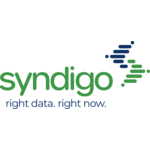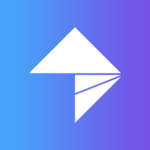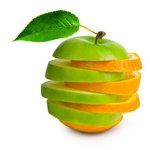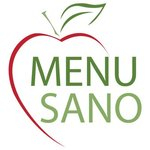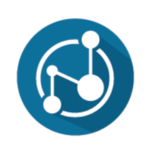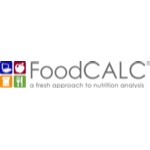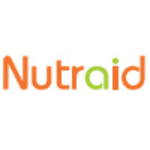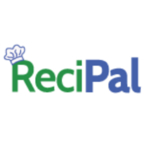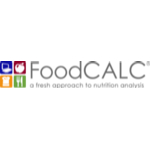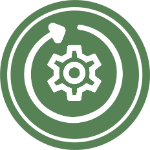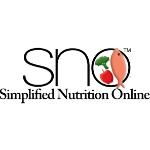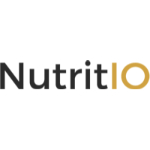TechnologyCounter provides genuine, unbiased real user reviews to help buyers make informed decisions. We may earn a referral fee when you purchase through our links, at no extra cost to you.
List of Best Nutrition Analysis Software
Showing 1 - 15 of 15 productsSyndigo is a leading software company that offers innovative solutions to help businesses effectively manage and distribute product information. With a focus on accuracy and efficiency, Syndigo empowers companies to succeed in an ever-changing retail...Read Syndigo Reviews
Nutrium is a software designed to revolutionize the way nutrition professionals manage and track their clients diets. With its user-friendly interface and powerful features, Nutrium streamlines the nutrition counseling process, allowing professionals...Read Nutrium Reviews
My PT Hub is a software designed specifically for personal trainers and fitness professionals. With its intuitive interface and powerful features, it streamlines administrative tasks, empowers trainers to better connect with clients, and ultimately h...Read My PT Hub Reviews
Nutritional Pro is a software for all your nutritional needs! Say goodbye to the hassle of tracking your meals and analyzing your nutrient intake. With Nutritional Pro, you can easily plan and monitor your diet, stay on top of your health goals, and...Read Nutritional Pro Reviews
Nutritics the ultimate nutrition analysis software for professionals. With advanced features and user-friendly interface, Nutritics allows you to easily track and analyze dietary intake, create personalized meal plans, and collaborate with clients. S...Read Nutritics Reviews
LabelCalc is a solution for accurate is a nutrition labeling. With LabelCalc, you can easily create FDA-compliant nutrition facts panels for your food products. Save time and eliminate mistakes with our user-friendly platform, designed to simplify th...Read LabelCalc Reviews
FoodWorks Nutrition Labelling is an innovative tool designed to help food manufacturers create accurate and informative nutrition labels for their products. With FoodWorks, businesses can ensure that their customers have access to crucial nutritional...Read FoodWorks Nutrition Labelling Reviews
Genesis R&D Food Labeling is a software designed to streamline the labeling process for food and supplement manufacturers. With user-friendly features and accurate calculations, this tool makes creating compliant and professional labels a breeze. Upg...Read Genesis R&D Food Labeling Reviews
Nutraid is a software that is revolutionizing the way businesses manage their nutrition data. Designed to simplify and streamline the process, Nutraid equips companies with the tools they need to optimize their operations and make informed decisions...Read Nutraid Reviews
ReciPal is a software that simplifies the process of creating nutrition labels for food products. With its user-friendly interface features, ReciPal streamlines the often complex and tedious task of food labeling, allowing businesses and individuals...Read ReciPal Reviews
Improve your products adherence to regulatory specifications with Smart Specification software. Smart Specification tool simplifies the process of meeting physical, chemical, microbial, nutritional, and allergen requirements, as well as recipe and la...Read Smart Specification Reviews
Simplified Nutrition Online is a user-friendly and customizable platform designed to simplify the process of managing your nutrition. With a variety of features and tools, staying on track with your health goals has never been easier. Say goodbye to...Read Simplified Nutrition Online Reviews
NutritioApp is a all-in-one solution for your nutritional needs. Whether youre striving for a healthier lifestyle or managing a specific dietary plan, NutritioApp offers personalized meal plans, ingredient tracking, and effective nutrition analysis...Read NutritioApp Reviews
- What Is Nutrition Analysis Software?
- Top Reasons Why Businesses Need Nutrition Analysis Software?
- What Are the Top Key Features of Nutrition Analysis Software?
- What Are the Top Benefits of Nutrition Analysis Software?
- What Are the Steps to Choose the Right Nutrition Analysis Software?
- What Are the Types of Nutrition Analysis Software for Different Industries?
- What Are the Technology Trends for Best Nutrition Analysis Software?
- What Are the Deployment Options for Nutrition Analysis Software?
What Is Nutrition Analysis Software?
Nutrition Analysis Software is a computer programme that analyses the nutritional composition of food. According to USDA standards, the programme maintains data on the nutritional value of substances used in food products such as carbs, proteins, vitamins, minerals, and fats.
Nutrient analysis software allows food manufacturers, food scientists, nutritionists, dietitians, and other food-related professionals to accurately analyse the nutritional value of food products.
Furthermore, the nutrient analysis tool offers users with reports on items or menus to help them make the best nutritional decisions for their customers. The online nutrition analysis software also enables food firms to monitor regulatory changes in order to ensure that their product packaging and labelling appropriately reflect changing nutrition laws.
Diet analysis tool programme ensures correct ingredient labels and nutrition facts panels, as well as detailed reports that can assist promote good eating habits by delivering precise nutritional information to consumers.
Top Reasons Why Businesses Need Nutrition Analysis Software?
1. Nutrient analysis tool allows businesses to track what they serve and precisely estimate the nutritional content.
2. As customers grow more aware, more nutritious items may be given, which increases customer happiness.
3. The best diet analysis software helps meet client requests, as many people want healthier menu options.
4. Nutrient analysis software provides businesses with information on which ingredients are the healthiest for their menu items.
5. Automates nutrient analysis, reducing the time and resources required for the scrap-and-build strategy.
6. The online nutrition analysis software allows firms to sell items that comply with nutritional labelling regulations.
7. Reduces time and ingredient costs by estimating how much of each ingredient is required for each dish.
8. Menu planning is made easier by recording nutrient levels in specific dishes and producing nutritional profiles.
9. Diet analysis tool allows organisations to streamline the menu engineering process and alter menu items cost-effectively to maximise yield.
10. Improves back-of-house efficiency by providing simple methods for tracking production and waste.
11. Aids businesses in identifying potential allergens and providing allergy information to customers.
12. Automates the process of creating nutrition labels for various menu items with up-to-date nutritional information.
13. Diet analysis tool allows businesses to rapidly and reliably confirm the completed product satisfies mandated nutritional criteria, which helps to assure prepared food safety.
14. The best diet analysis software allows businesses to determine dietary restrictions for specific clients and adjust meals to their needs.
15. Nutrient analysis software provides detailed reports for simply monitoring nutritional levels and compliance with standards and norms.
What Are the Top Key Features of Nutrition Analysis Software?
1. Nutrition analysis software should be able to track the nutrients in a specific food item or meal. They can accomplish this by utilising a large database of food items and nutrition information.
2. Nutrient analysis software should be able to determine total calorie consumption for meals or snacks in order to assist users in developing healthier diets.
3. Nutrient analysis tool should show how dietary intakes have changed over time. This allows users to discover trends and alter their diets as needed.
4. Diet analysis tool should include meal-planning tools that allow users to plan meals and snacks that are matched to their nutrient requirements. It should also offer dietary advice to keep users on track to meet their objectives.
5. The online nutrition analysis software should allow users to generate reports and data visualisations to track their progress. It should also capture nutrition-related metrics such macronutrient and micronutrient intakes, as well as recommended dietary allowances (RDA).
6. The best diet analysis software should be able to communicate with other external databases. Users can track and monitor their dietary habits across a variety of devices.
7. Nutrition analysis software should be available in a variety of languages. This enables users to develop and customise their own software translations.
8. The nutrient analysis tool should include capabilities that allow users to use the application securely using their personal accounts. It should also have the ability to restrict access to specific data and functionalities.
What Are the Top Benefits of Nutrition Analysis Software?
1. Improved accuracy: Nutrition analysis tools can provide precise and up-to-date information on the nutritional value of foods. This helps to verify that nutritional labelling is correct and that nutritional recommendations are followed.
2. Enhanced insight: Nutrition analysis software can provide useful insight into consumer diets and behaviours by providing extensive information about the nutritional value of items. This information can subsequently be used to inform food labelling, public health campaigns, and measures to promote healthy eating.
3. Cost savings: The best nutrition analysis software can help you save time and money. Manually calculating nutritional values can be a time-consuming and costly operation, but nutrition analysis software can offer this information quickly and at a low cost.
4. Automated processes: Many of the arduous manual operations related with food analysis are automated by nutrition analysis software, decreasing human error and the risk of inaccuracy.
5. Enhanced monitoring: Diet analysis tool can aid in the monitoring of adherence to nutrition requirements and the accuracy of food labels.
6. Support of research projects: The best nutrition analysis software is frequently used in research projects to give accurate and extensive nutritional information about foods. This enables researchers to make useful conclusions from their data.
What Are the Steps to Choose the Right Nutrition Analysis Software?
1. Identify your nutritional analysis needs: You should identify and understand the specific needs for your food product or service before selecting nutrient analysis software. Consider the goals' scope, the precision and accuracy of the outputs, and the budget limits.
2. Research available options: Once you've determined your requirements, you can begin researching the various nutrition analysis software solutions on the market. Examine their features and benefits, ratings, pricing, and customer service.
3. Test each product: Download trial versions of the best nutrition analysis software you're thinking about buying. You can get direct feedback on how the program satisfies the specific needs of your product.
4. Compare results: Compare the accuracy of the findings obtained from each software. This will assist you in determining the best fit for your requirements.
5. Make a final decision: Make a final selection on which nutrition analysis tool is the greatest fit for your nutrition needs based on your research, testing, and comparison.
What Are the Types of Nutrition Analysis Software for Different Industries?
Nutrition analysis software is a sort of computer programme that allows specialists in the food industry to track and analyse the nutritional values of various food products.
There are various types of nutrition analysis software available for various businesses, including:
1. Food Processing and Manufacturing: TThese programmes are intended to assist businesses in ensuring that their food items comply with nutritional labelling rules and federal standards.
2. Restaurants and Culinary Arts: Restaurant nutrition analysis tool assists companies in understanding the nutritional contents of their dishes and creating menu items that satisfy the dietary requirements of their clients.
3. Healthcare and Fitness: The best diet analysis software are intended to assist healthcare and fitness experts in tracking food nutritional values and assisting their patients in creating balanced diets for optimal health benefits.
4. Education and Research: Nutrition analysis software can be used by universities and research organisations in research projects and instructional programmes to help with data collecting, research, analysis, and synthesis.
5. Foodservice and Catering: This form of nutrition analysis tool assists foodservice and catering personnel in understanding the nutritional content of the food they serve and creating recipes that satisfy customers' dietary restrictions.
What Are the Technology Trends for Best Nutrition Analysis Software?
The technology trends for best nutrition analysis software are as follows:
1. Cloud-Based Platforms: Cloud-based nutrition analysis software programmes are gaining popularity since they can be used from anywhere, at any time. Users do not need to install or maintain software because data is stored in the cloud.
2. AI Based Technologies: Artificial intelligence (AI)-based technologies are gaining popularity for developing better nutrition analysis solutions that can analyse vast amounts of data fast and reliably.
3. Automation: Automation is being utilised to reduce the time and effort required for nutrition analysis by automating common processes such as data entry and reporting.
4. Mobile Technology: Mobile devices are growing increasingly capable, and mobile apps with nutrition analysis capabilities are being developed. This increases the number of people who have access to nutrition analysis solutions, which leads to better decision-making.
5. Collaboration Based Technologies: Collaboration technology, such as sharing platforms, enable greater Multi-Client Accessibility, which can lead to more accountability and collaboration among clients and providers.
What Are the Deployment Options for Nutrition Analysis Software?
Nutrition analysis software deployment solutions vary depending on the type of solution being delivered and the unique requirements of the solution. Such software can be deployed in three ways: hosted, on-premises, or cloud-hosted.
Hosted solutions are those in which the best nutrition analysis software is hosted by the vendor and made available to the customer on an as-a-service basis. Customers with low technical resources or who desire a quick and easy set up process will benefit from hosted solutions.
On-premise: On-premise solutions require the software to be placed on an in-house server and managed by the customer. This sort of deployment necessitates more technical resources but gives the consumer more control and customization.
Cloud-Hosted: The majority of nutrition analysis tool are cloud-hosted. The programme is hosted on an external server and managed by the vendor in this manner. Cloud hosting provides a more secure and stable environment, as well as scalability and performance advantages.
